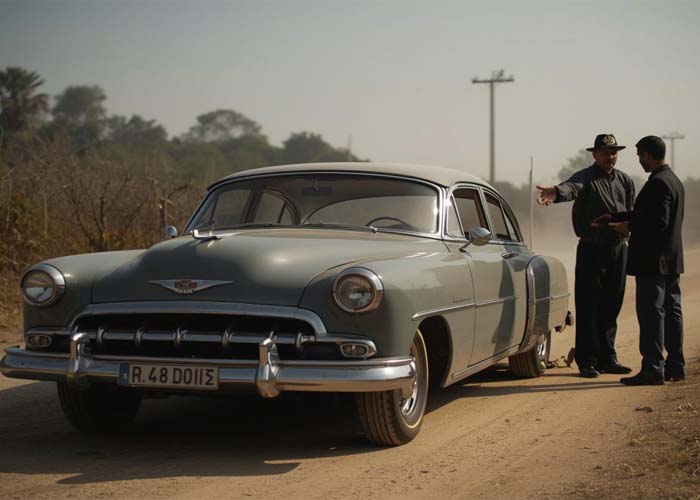When it comes to selling your car, many people think the resale value depends only on the color and the kilometers driven. But the truth is, resale value is like a rollercoaster shaped by policies, paperwork, psychology, and market demand. If you want to secure the best price for your car in the resale market, you need to keep several important factors in mind. Let’s discuss the Top 10 Tips on How to Get the Best Resale Value for Your Car.

1. Government Policies and Age Rules
At present, the Delhi government has proposed shifting the end-of-life vehicle rule from being age-based (10–15 years) to emission-based, but no final conclusion has been made. Until then, the number of years left in your car’s life directly affects resale value. The newer the car, the better the price. After the set age limit, things might change dramatically, so timing your sale is crucial.
2. Fuel Type Matters (CNG, Petrol, Diesel, EV)
- Factory-fitted CNG cars hold better value than aftermarket kit installation. Buyers prefer factory setups because of safety, efficiency, and compliance.
- Electric Vehicles (EVs) are still new in the Indian resale market. It will take time before their resale values stabilize.
- Diesel cars face higher maintenance with strict emission norms, so their demand may decline compared to petrol and hybrid vehicles.
3. Transmission: Automatic vs. Manual
Automatic cars generally command higher resale value than manual cars, even though maintenance and repair costs can be higher. Buyers see automatic cars as more convenient for urban driving, and demand has been steadily growing.
4. Body Style and Market Demand
In India, SUVs are in high demand all the time, which automatically pushes up their resale value. Hatchbacks and sedans follow, but SUVs have become the first choice for most buyers due to space, style, and road presence.
5. Brand and Service Network
Cars from brands with a dense and reliable service network—such as Maruti Suzuki, Hyundai, and Toyota—tend to have more stable resale values. On the other hand, discontinued models or brands fetch a decent resale only if spare parts and service support are easily available.
6. Vehicle Service History and Condition
Buyers are willing to pay more if your car has a verified service history. Here’s what makes a difference:
- Low and genuine odometer reading.
- No history of major accidents or flood damage.
- Regular maintenance and servicing at authorized centers.
This builds trust and gives peace of mind to the buyer, ensuring you get your money’s worth.
7. Modifications Can Backfire
While many owners enjoy customizing their cars, illegal or flashy modifications—like loud exhausts, dark tints, or bull bars—can hurt resale value. These often create insurance hassles and may make buyers suspicious about the car’s condition. A stock, well-maintained vehicle always attracts better offers.
8. Ownership, Paperwork, and Legal Formalities
- First-owner cars always attract a premium compared to second or third-hand vehicles.
- Hypothecation removal is a must—if your car is financed, ensure you get the NOC (No Objection Certificate) from the bank and update your RC. Otherwise, buyers will ask for a price cut.
- Keep your insurance valid and documents like Valid PUC (Pollution Under Control certificate) up to date. Clean paperwork increases buyer confidence and prevents negotiations from slipping.
9. Added Features That Boost Resale
Extra features often translate into extra value:
- Rear Camera: Parking assist and safety add-ons are highly preferred.
- Wireless Connectivity (Apple CarPlay, Android Auto, Bluetooth, Wi-Fi): Tech-savvy buyers love convenience.
- ADAS (Advanced Driver Assistance Systems): Still new in India, but cars with ADAS enjoy a premium resale because they’re seen as future-ready and safer.
- Transferable warranty and extended warranty: This makes buyers feel secure about the investment.
10. Safety Ratings and Awareness
India is becoming more conscious about car safety. Buyers now check GNCAP/BNCAP ratings before making a decision. Cars with 4 or 5-star ratings, six airbags, and strong crash-test results enjoy higher resale demand. Safety—it’s a priority now a days.
Bonus Tips on How to Get the Best Resale Value for Your Car
- Festive Season Demand: Car sales in India peak during festive seasons, and resale value also benefits. If possible, schedule your sale during this time for better offers.
- BS6 and BS6 Phase II Cars: With stricter emission norms, BS6 cars are now more desirable. Buyers know that BS6 vehicles are future-compliant, which pushes up their resale value compared to BS4 or older models.
Read more: Maruti Suzuki Ertiga After GST 2.0 – India’s Best Selling 7 Seater MPV: Features, Price & Mileage
Why Skipping Car Service is a Big Mistake: Complete Maintenance Guide for Petrol and Diesel Cars
Conclusion- How to Get the Best Resale Value of Your Car?
Resale value is shaped by much more than just kilometers and color. From government policies to safety ratings, and from paperwork to technology features, every detail matters. If you want the best resale value for your car, focus on maintaining its condition, keeping documents updated, avoiding unnecessary modifications, and timing the sale smartly.
In today’s Indian market, buyers are smarter and more aware—a well-maintained, feature-rich, safe, and compliant car will always fetch you the best price.
